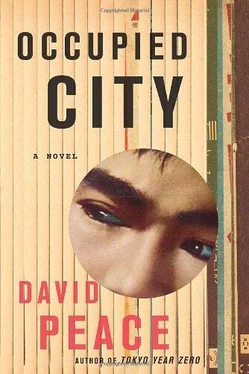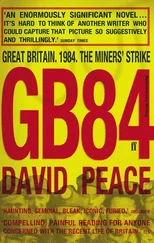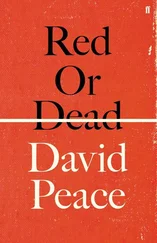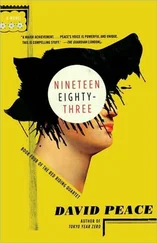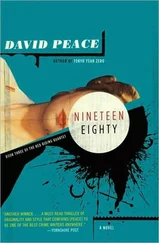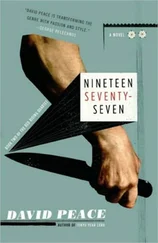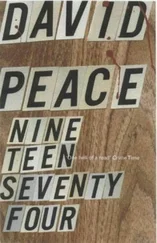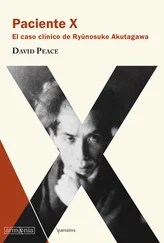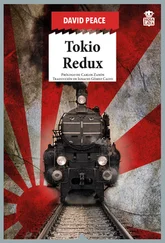‘But not for me! Not me! This is my time! This is my city!
‘I run this city. I rule this city. I walk where I want. I sit where I want. I eat what I want. I buy what I want. Who I want. I build what I want, where I want and when I want. I take what I want. I say what I want. I do what I want. Because this is my city. My city! And in my city, everything is mine. Everybody mine! Mine! Mine! Mine!
‘Soldier, war criminal, gangster, strike-breaker, factory-owner, managing director, company president and politician, they are all me and this is all mine! Mine! Mine! Mine! In my city! My city!’
And now beneath the Black Gate, in its upper chamber, in the occult circle of the six candles, he blows out one more candle –
‘But it’s too late, too late for you, Mister Writer …
‘For you are out of time, Mister Puppet…
‘Out of time, little puppet…’
In the light of now-five candles, in their occult circle, in the upper chamber, beneath the Black Gate, you thrash and you shout –
‘I am not a puppet! I am not a puppet!’
Hands above your head, you dance in the light of the circle, chopping and cutting at the strings and at the webs –
‘I will cut all strings. I will cut all ties –
‘I will smash all clocks, all time!’
But now you stop. You lower your head. You close your eyes. For you want to rest. You want to sleep. To never –
‘Wake up, decadent!’ now shouts a thick and heavy-accented voice and so you try to open your eyes, to open your eyes to the gloom of the five candles, still in the upper chamber,
still beneath this Black, Black Gate –
‘Wake up, degenerate!’
The medium upright, taut and still, her mouth opening, opening and speaking, speaking and saying, ‘I am Homo Sovieticus — ’I am Comrade Andrei Kaidanovsky –
‘And this is my journal –
‘My martyr-log …
The Eighth Candle — The Martyr-log of a Homo Sovieticus
Tokyo, January 9, 1947
This city, this country, is a wilderness to me and so these words, these pages, will document my temptations, my trials. Hence there are words for reports, for the tops of desks, the desks of others, and then there are words for diaries, the drawers of memories.
I finally arrived here in Tokyo from Khabarovsk two days ago. Yesterday I met with Comrade Maj. Gen. A. N. Vasiliev, one of our Associate Prosecutors at the International Military Tribunal for the Far East. I had been told in Khabarovsk that it was Comrade Vasiliev who had personally requested my presence in Tokyo. However, it was clear from our first meeting that Comrade Vasiliev had made no such request.Comrade Vasiliev was aware, though, that it had been I who had conducted the interrogations of Major Karasawa Tomio and Maj. Gen. Kawashima Kiyoshi in Khabarovsk last year. Comrade Vasiliev had read the transcripts of my interrogations of the prisoners and my report and its conclusions on the Japanese Bacteriological Warfare programme as it pertained to possible prosecutions for war crimes, both in Tokyo at the IMTFE, and in Khabarovsk at our own proposed trials of former servicemen of the Japanese army.
I had been told in Khabarovsk that an informal approach had been made to the Americans to interview Ishii, Ōta and Kikuchi. Hence, my presence in Tokyo would be required to conduct the interviews. Comrade Vasiliev confirmed that a low-key approach had been made through the backroom staff of the American IPS. However, the G-2 (Intelligence) Section of the American GHQ had informed Comrade Vasiliev that any such request must be submitted in writing, detailing the reasons for the interrogations.
On my arrival, Comrade Vasiliev was therefore in the process of submitting a formal request to Maj. Gen. Willoughby, chief of G-2, to interrogate Ishii, Ōta and Kikuchi and I was able to assist in the preparation of the request:
‘At the disposal of the Soviet Division of the International Prosecution Section,’ we wrote, ‘there are materials showing the preparation of the Kwantung Army for bacteriological warfare. To present these materials as evidence to the Military Tribunal it is necessary to conduct a number of supplementary interrogations of persons who worked previously in the Anti-epidemic group (Manabu) N731 of the Kwantung Army. These persons are:
Lt. Gen. of Medical Corps Ishii, commander of the Anti-epidemic group N731.
Colonel Kikuchi, Chief of the 1st Section of the Anti-epidemic group N731.
Colonel Ōta, Chief of the 4th Section (and prior to that, chief of the 2nd Section) of the Anti-epidemic group N731.
‘These persons’, we continued, ‘are to testify about research work on bacteria carried out by them for the purpose of using bacteria in warfare and also about cases of mass murders of people as the result of those experiments. I believe that it would be expedient to take preliminary measures preventing the spreading of information concerning this investigation before the investigation is completed and the materials are presented to the Tribunal, i.e., to take from these witnesses certificates to the effect that they promise not to tell anybody about the investigation of these matters and to conduct the preliminary interrogations not in the premises of the War Ministry building.
‘In connection with the above-said, I ask you to render us assistance through the IPS in conducting the interrogations of the said persons on January 13, in premises specially assigned for this purpose, and after taking from them certificates containing promises not to speak about the investigation.
‘Besides that,’ we concluded, ‘I request you to provide the Soviet Division of the IPS with certificates of the whereabouts of Lt. Col. Murakami Takashi, former chief of the 2nd Section of the Anti-epidemic group N731, and Nakatome Kinzo, former chief of the General Affairs Section of the same group. These certificates are needed for the purpose of submitting them to the Tribunal.’
Both Comrade Vasiliev and I felt the letter carried just the right amounts of deference and contempt, promise and threat. Still, I could not help but feel — given all we know that they know and all they know that we know — that our knees were bent, our caps in hands. Then again, if the child does not cry, the mother cannot know it is hungry. And as long as I get my hour with Ishii, I do not care if I have to beg.
January 12, 1947
Early this morning, before the light, I walked down to Tokyo Bay and I stood on the docks and waited for the dawn. As I watched the faint winter sun struggle up the heavy winter sky, I thought of the thousands of dawns I had seen, the thousands of miles I had walked, over these past ten years, to stand there on those docks, in this city, in that dawn, on this day.
And maybe it was the water and the light, maybe the hour and the season, but I was suddenly beset with childhood memories of post-revolutionary Petrograd in that eerie winter of 1917-18, when the city and its people seemed to have broken free of their moorings, when the city and its people seemed to be floating off somewhere unknown.
Roads are never straight for long; they twist and they turn, they rise and fall, fork and diverge. With or without maps, there are always choices to be made; always choices and always consequences, whether you stay or whether you go, choices and consequences, consequences and farewells.
All those farewells, some said and some unsaid, but all those people still gone, floating off somewhere, somewhere unknown, somewhere down the river, somewhere behind me.
For behind me this morning, on those grey docks, were the ruins of Tokyo, the ruins of Japan, of Asia, North Africa, and the Middle East, of our Russian Motherland and our Soviet Republics, of Germany and of Europe, all lain flat out behind me, everywhere and everyone collapsed, the cities and the people, the people still suffering.
Читать дальше
